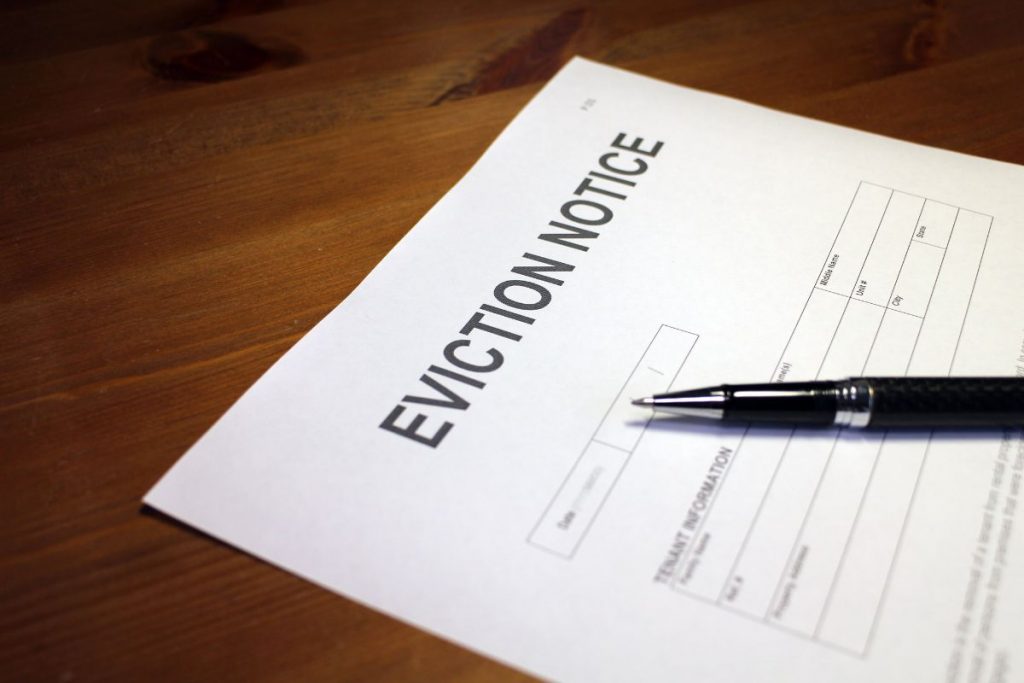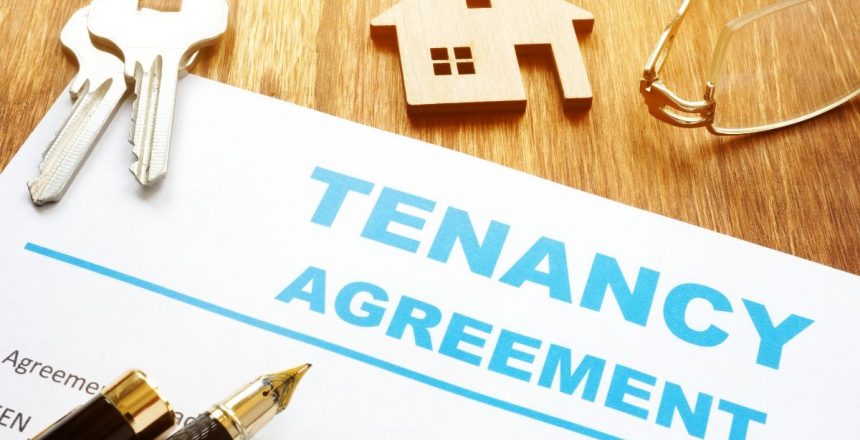Before you sign your rental contract in Dubai, it is important that you are aware with the RERA tenancy contract laws. RERA (Real Estate Regulatory Agency) governs tenant rights in Dubai, landlord requirements, and the entire relationship between the two parties. Let’s dive deep to learn about Dubai tenancy law, tenancy contract conditions, increases in rent, and much more.
ABOUT THE TENANCY LAWS IN RERA
The Real Estate Regulatory Agency (RERA) was set up in Dubai as a regulatory arm of the Dubai Land Department. The RERA department is in charge of regulating the relationship between a landlord and a tenant under Dubai’s tenancy laws.
There are four important laws to remember when it comes to RERA tenancy law in Dubai:
- Dubai Law No. (26) of 2007 regulates the interaction between landlords and tenants.
- The landlord-tenant relationship in Dubai is governed by Law No. (33) of 2008, which also changed some sections of Law No. (26) of 2007.
- The Rent Disputes Settlement Centre (RDSC) was formed by Decree No. (26) of 2013, which resolves all forms of rental disputes in Dubai.
- Decree No. (43) of 2013: This law covers rent increases in Dubai specifically.
Let’s take a deeper look at Dubai’s tenancy law. This guide will essentially cover all you need to know about the RERA tenancy contract requirements as defined in Law No. (26) of 2007.

IN DUBAI, THE TERMS OF THE RERA TENANCY LAW
The Real Estate Regulatory Agency has defined contractual requirements that enable the efficient operation of the rental property market in Dubai under the Law Regulating Relationships between Landlords and Tenants in the Emirate of Dubai No. 26 of 2007.
According to Article 4 of Law (33) of 2008, the tenant or landlord must register the tenancy contract with the Real Estate Regulatory Agency (RERA) via Ejari. This assures that the apartment is not rented twice.
According to Article 6 of RERA’s tenancy Law (26) of 2007, if a tenancy contract in Dubai expires and the tenant continues to live in the property without objection from the landlord, the term of tenancy will be automatically extended for the same period of one year (whichever is less), on the same terms and conditions.
According to Article 28 of Dubai’s property rent law, transferring property ownership to a new owner has no effect on the tenant’s ability to occupy the property.
AMENDING THE CONTRACT’S TERMS
If the landlord or tenant wants to change the terms of the contract, they must inform the other party at least 90 days before the contract’s expiry date, according to Article 14 of the Dubai tenancy law.
As a result, if the landlord or tenant chooses to amend the rent amount or contract term, or include/exclude any rules, they must do so three months before the contract expires.
ENDING A TENANCY CONTRACT IN DUBAI
Article 7 of Dubai’s RERA tenancy laws states that legal rental agreements cannot be unilaterally cancelled during their duration by either the tenant or the landlord unless both parties agree.
The contract of renting does not end if the tenant or landlord dies, according to Article 27. In these cases, the tenancy connection is transmitted to the party’s heirs, and the contract stays in effect until they choose to cancel it. If the heirs wish to provide notice, they must do so within 30 days of the contract’s expiration date, whichever comes first.

In Dubai, there is no RERA property rent law that controls the early termination of lease agreements. If a tenant wishes to terminate their rental contract in Dubai, they must follow the cancellation or early termination clause in their contract. If such a clause does not exist, the landlord may seek compensation for terminating the tenancy early.
LANDLORD’S VACATING NOTICE
According to Law No. (33) of 2008, the tenant has no responsibility to offer any notice prior to quitting the property when the lease expires.
Law No. (33) of 2008 removed the formerly necessary need for landlords in Dubai to provide a 90-day leaving notice.
However, the terms of your lease contract take precedence, which may demand a specified notice time in the event of contract non-renewal.
If you do not follow this paragraph in your contract, the landlord has the right to seek compensation as a penalty for failing to submit the requisite notice.
When the tenant vacates the property, the landlord is also expected to repay the security deposit in full or the amount remaining after deductions. In this dedicated guide, learn how to get your landlord’s security deposit.
EVICTIONS UNDER DUBAI TENANCY LAW
Article 25 of Law No. (26) of 2007, as amended by Law No. (33) of 2008, specifies that the landlord may seek the removal of the tenant before the contract expires in the following circumstances:
- The tenant fails to pay the rent within 30 days of receiving written notice from the landlord.
- Without the landlord’s express permission, the tenant sublets the property.
- Tenant engages in or permits others to engage in immoral or criminal actions on the property.
- Tenant causes or enables others to create damage or alterations to the property that endangers its safety.
- The tenant utilizes the property for reasons different than those for which it was rented.
- The tenant fails to comply with any of the tenancy contract’s or the law’s provisions within 30 days after receiving written notice from the landlord.
- In cases when a tenant has stopped operating for 30 consecutive days or 90 days not consecutively in commercial premises, the landlord may demand eviction.
- If the government body requires the destruction of the property for the emirate’s urban development,

The landlord may also pursue eviction at the expiration of the lease term under RERA tenancy contract guidelines if:
- The landlord wants to rebuild or destroy the property.
- The property requires extensive maintenance or renovations that cannot be completed while the tenant is residing there.
- The landlord want to sell of the property.
- The landlord intends to utilize the property for his personal use or that of his first-degree relatives.
In such circumstances, the landlord must send the opposite party with written notice for 12 months through registered mail or public notary.
DUBAI RENT INCREASE
According to Article 9 of Law (26) of 2007, landlords and tenants must indicate a mutually acceptable rent value in their lease arrangement. This rent cannot be increased before the conclusion of a two-year period beginning on the date of the initial contract.
As with all other tenancy contract revisions in Dubai, the landlord must notify tenants of any anticipated rent increase at least 90 days before the contract expires. If the tenant refuses the increase, he or she must provide at least 60 days’ notice prior to the renewal date.
If both parties are unable to reach an agreement, or if the tenant intends to protest an unreasonable rent rise, they may file a rental dispute in Dubai with the Rent Dispute Settlement Centre.
All rent increases in Dubai must be in conformity with Decree No. (43) of 2013. From the 21st of December 2013 until the present, the increase is limited to a maximum of 20%. The maximum rent increase in Dubai is capped differently based on the present rent of the property, according to this rental regulation.
The Dubai tenancy law, for example, requires that no rent increase is permitted if the existing rent of the property is up to 10% less than the average rate of the same units, and a 5% increase is permitted if the current rent is 11% to 20% less than the average rent.
The Real Estate Regulatory Agency has exclusive jurisdiction in Dubai to set the rent increase percentage under Article 10 of Law (26) of 2007. Landlords and tenants can use the RERA rental calculator on the DLD website to determine the percentage of rent increase they are entitled for.
TENANT AND LANDLORD RESPONSIBILITIES
IN DUBAI, GENERAL OBLIGATIONS AND TENANT RIGHTS
Here are some RERA tenancy contract guidelines for Dubai tenants to remember while renting a property in the emirate:
- Article 19: The tenant shall pay the agreed-upon rent on time. The tenant isn’t allowed to perform any repair, restoration, or alterations to the property unless the landlord approves it.
- Article 21: At the end of the lease agreement, the tenant is also required to return the property in the same condition, with the exception of normal wear and tear.
- Article 22: Unless the landlord and tenant have agreed differently, the latter is responsible for paying all applicable taxes and fees to the appropriate government offices.
- Article 23: Unless otherwise agreed upon by the parties, the tenant must not remove any modifications made to the property while quitting.
LANDLORDS’ GENERAL OBLIGATIONS IN DUBAI
Landlords in Dubai have the following requirements under the RERA property rent law.
- Article 15: The landlord shall guarantee that the property turned over is in good shape and that the tenant has full use of it in accordance with the contract.
- Article 16: Unless otherwise agreed, the landlord is responsible for the maintenance, repair, and restoration of any flaws, defects, wear and tear caused to the property for the duration of the leasing contract.
- Article 17: The landlord must not make any alterations to the rented property that would prevent the tenant from using it fully.
- Article 18: Where applicable, the landlord shall supply the tenant with any official permissions and/or licences necessary to carry out any construction or redecoration of the property.
FAQS
IN DUBAI, HOW DO I EVICT A TENANT?
The Dubai property rent law specifies the eviction procedure. To evict a renter in Dubai, you must first:
- Have a proper eviction grounds in accordance with Article 25 of Law No. (26) of 2007.
- Send the tenant a written 30-day eviction notice through registered mail or public notary.
- Get RERA authorization for eviction.
IN DUBAI, WHO IS RESPONSIBLE FOR PAINTING, THE LANDLORD OR THE TENANT?
Painting the building is classified as repair and maintenance work. Unless otherwise agreed, it is the landlord’s obligation to carry out such works, according to the law.
IN DUBAI, WHERE CAN I COMPLAIN ABOUT MY LANDLORD?
You can make a complaint with the Rent Disputes Settlement Centre of the Dubai Land Department. Their headquarters are in Deira.
We hope that this brief overview of Dubai tenancy law explains the terms of the contract you signed and helps you understand your rights and duties.




